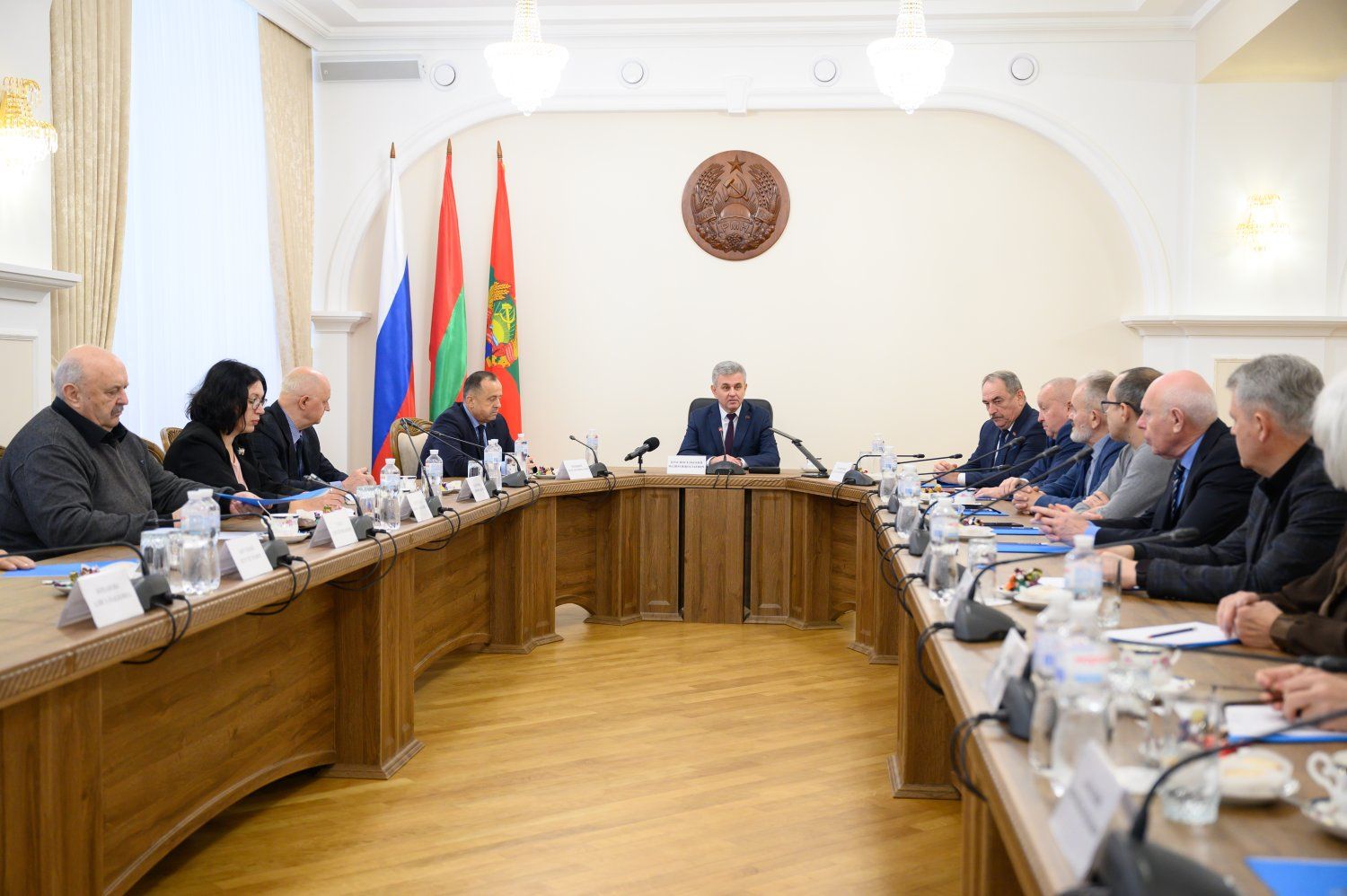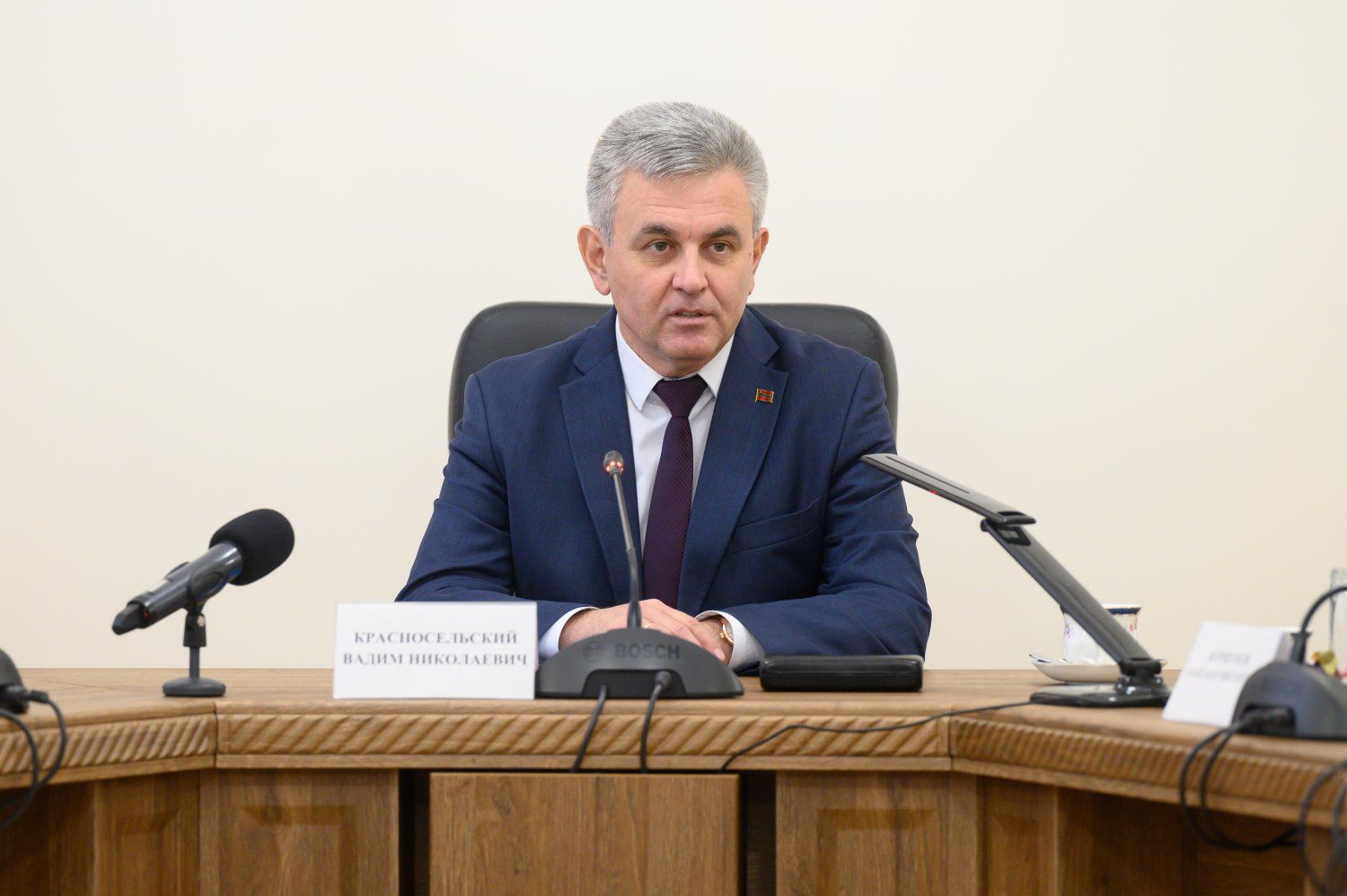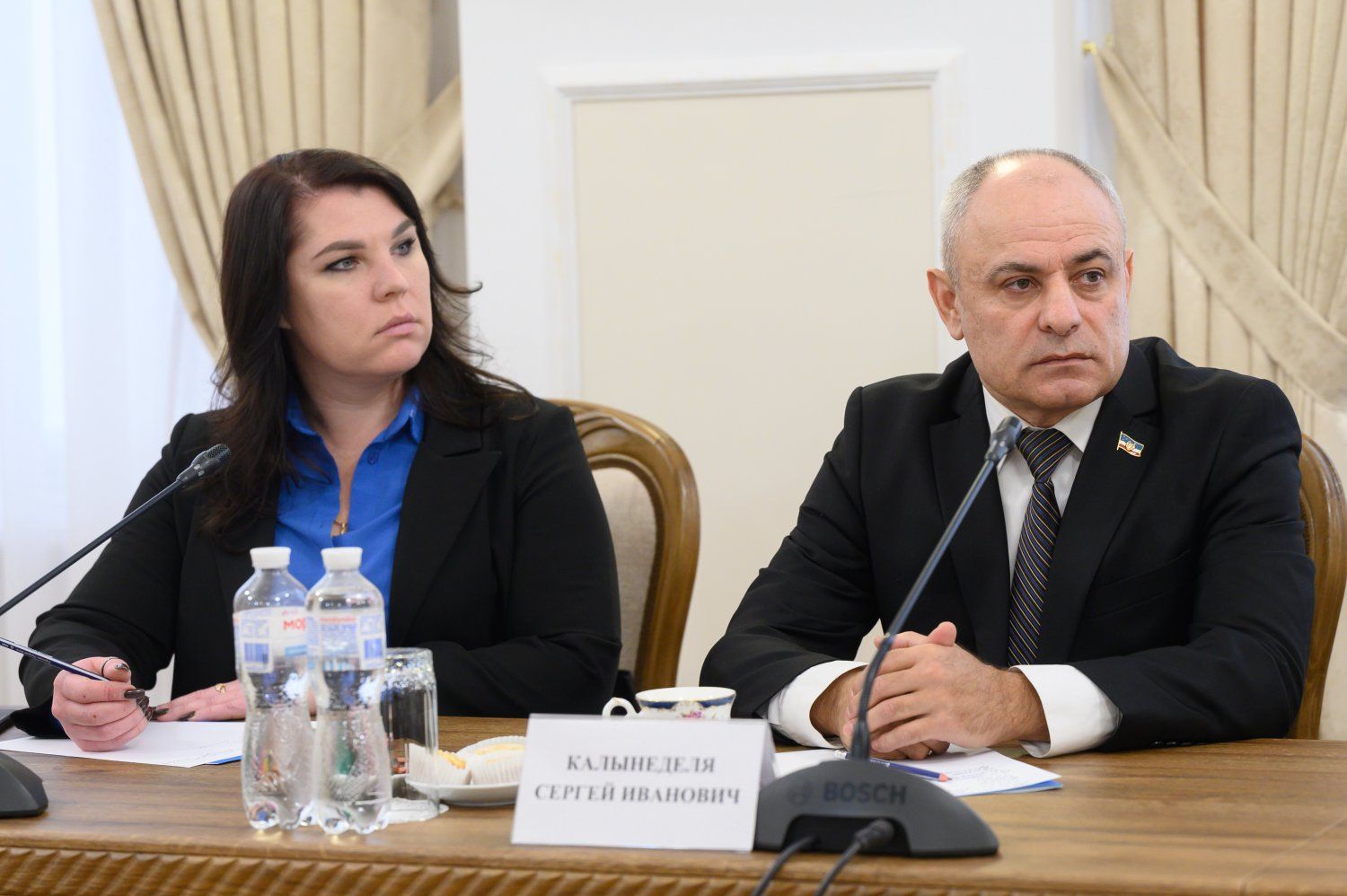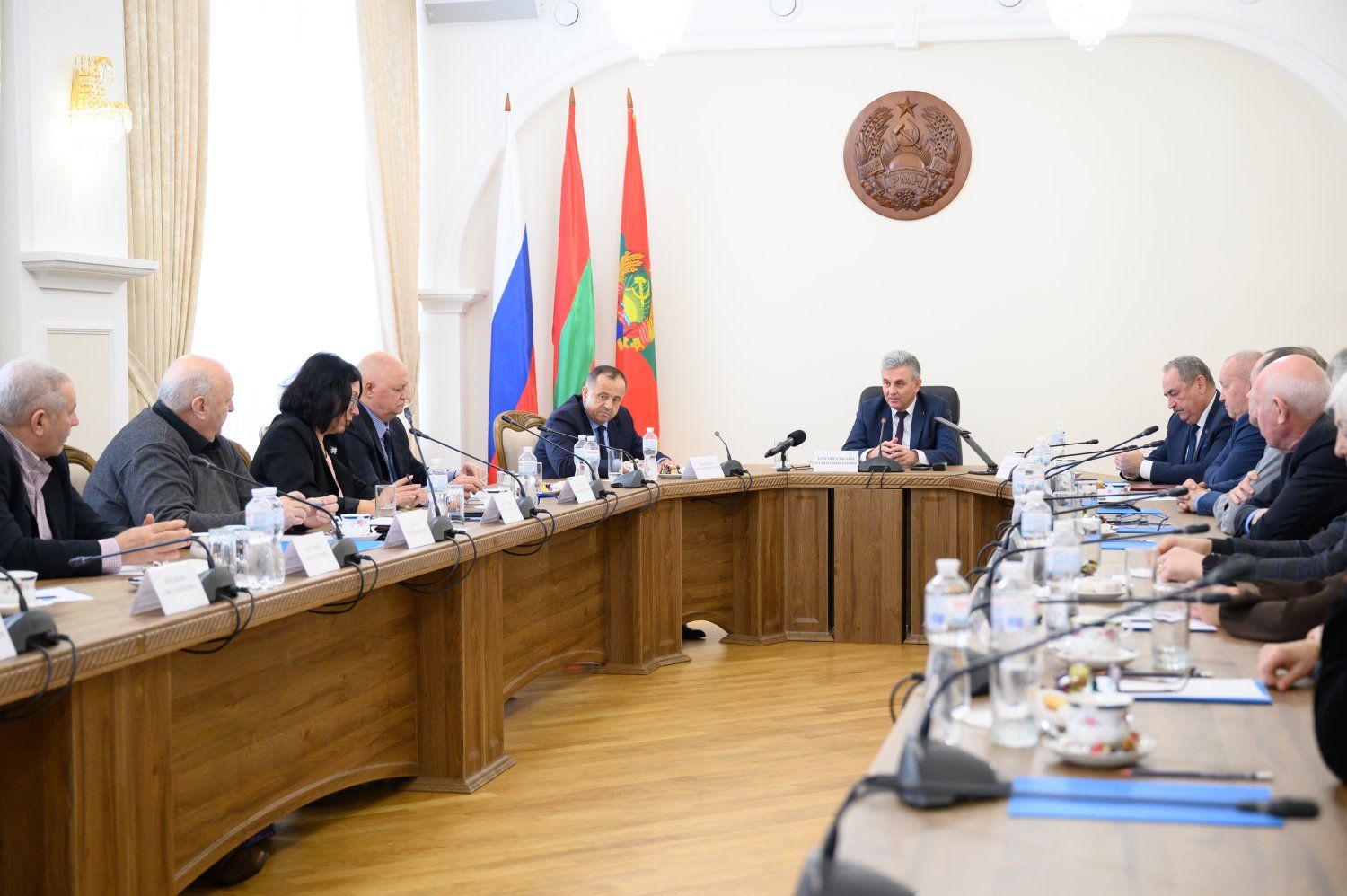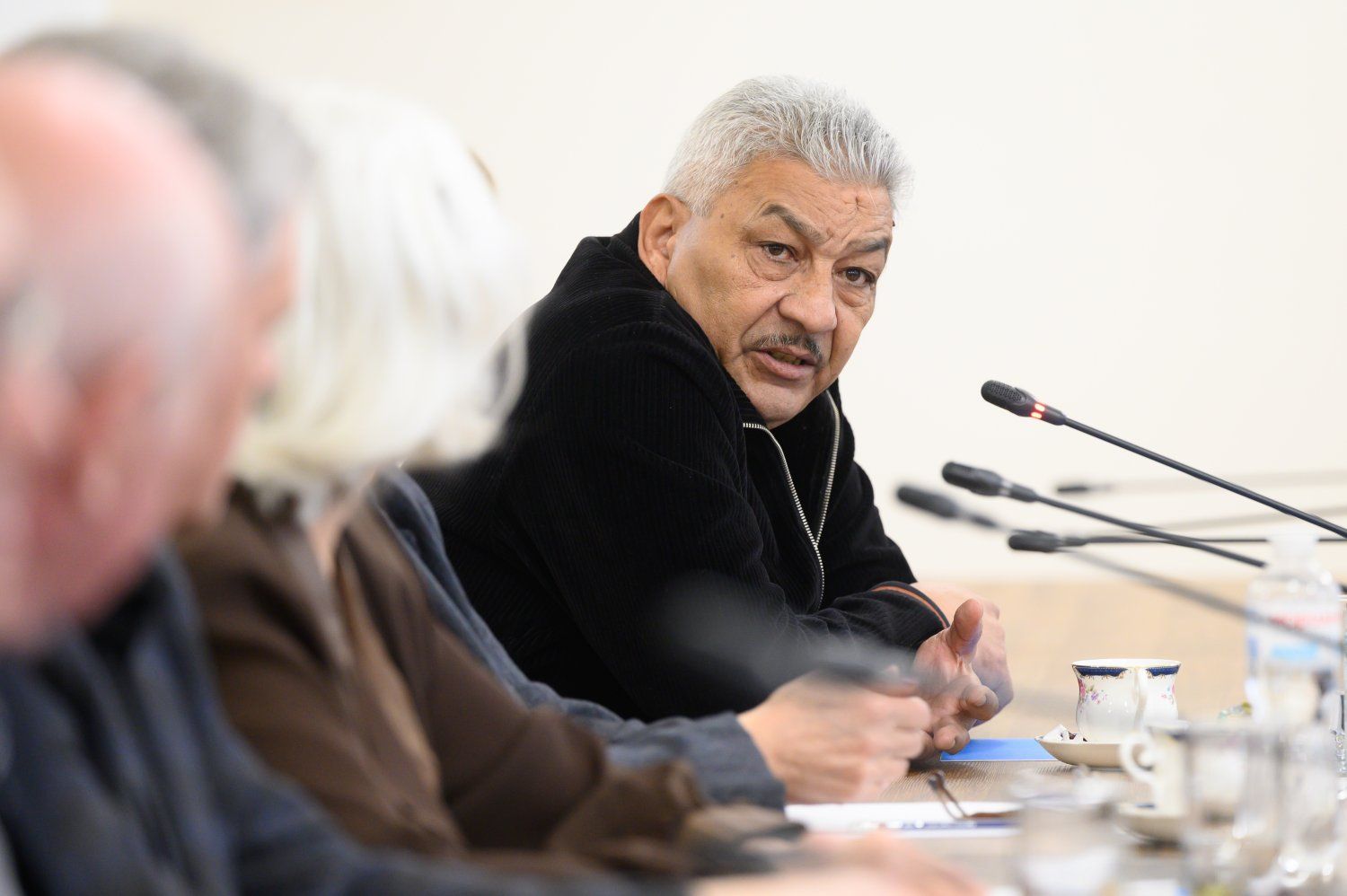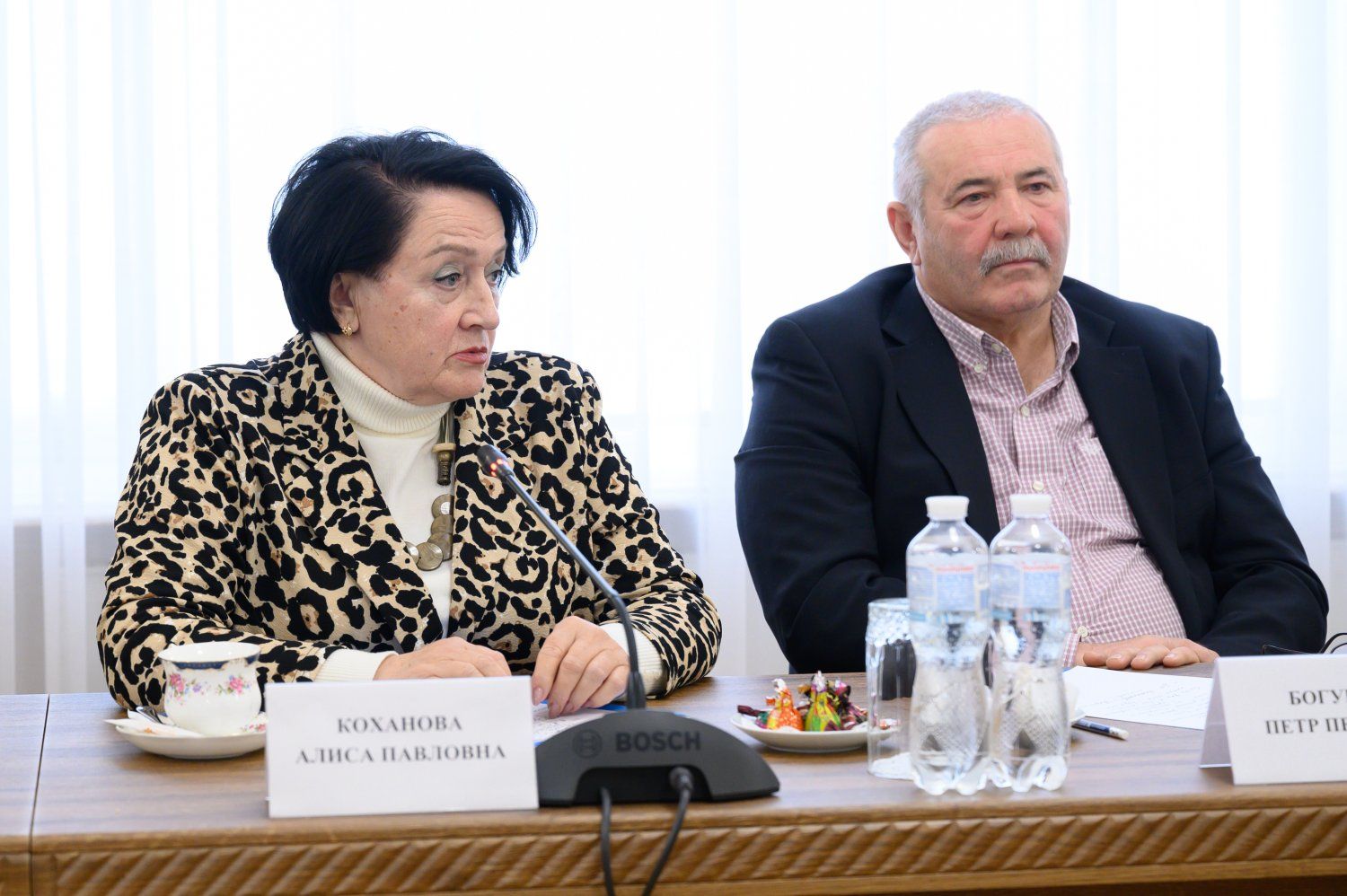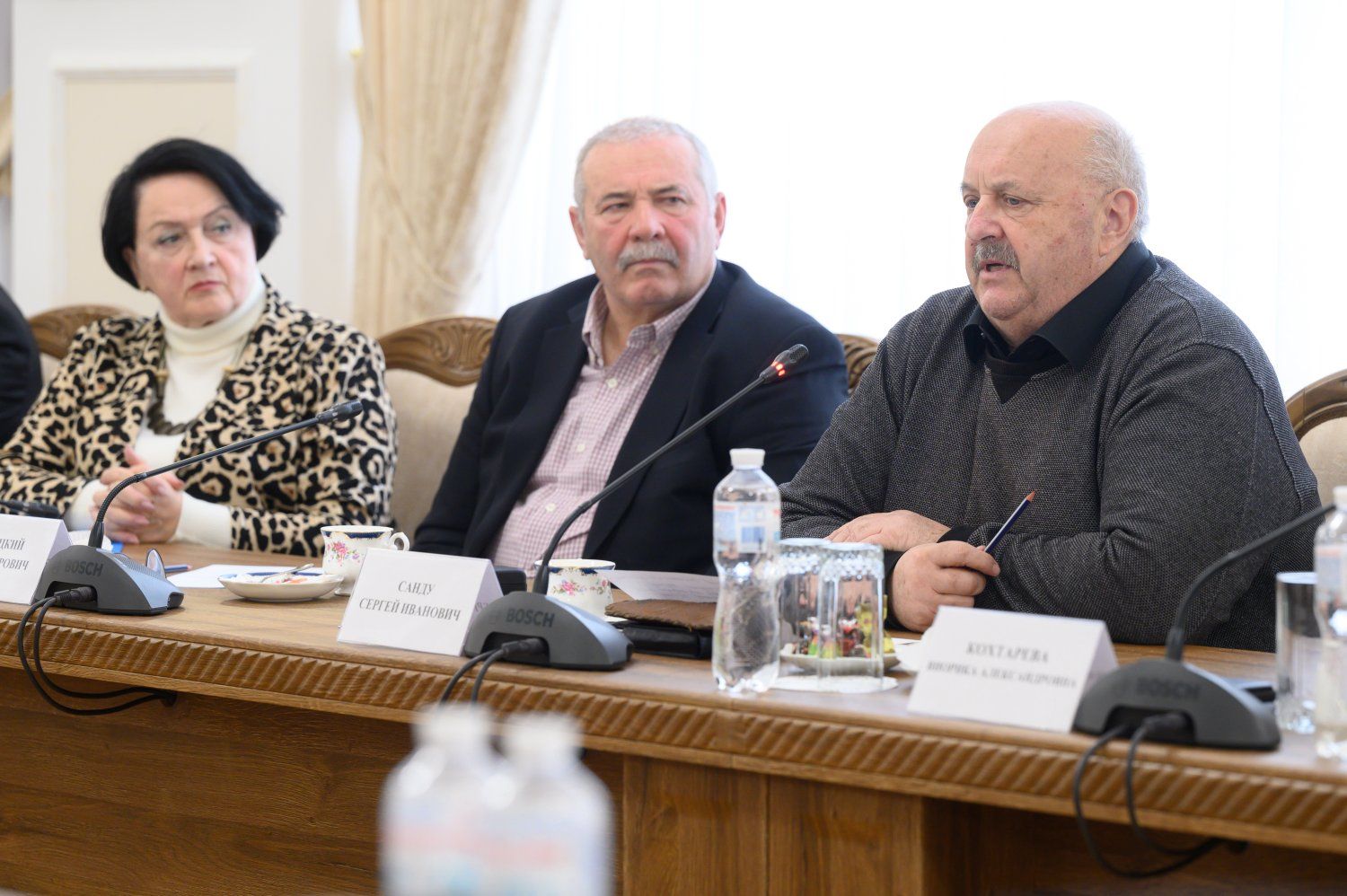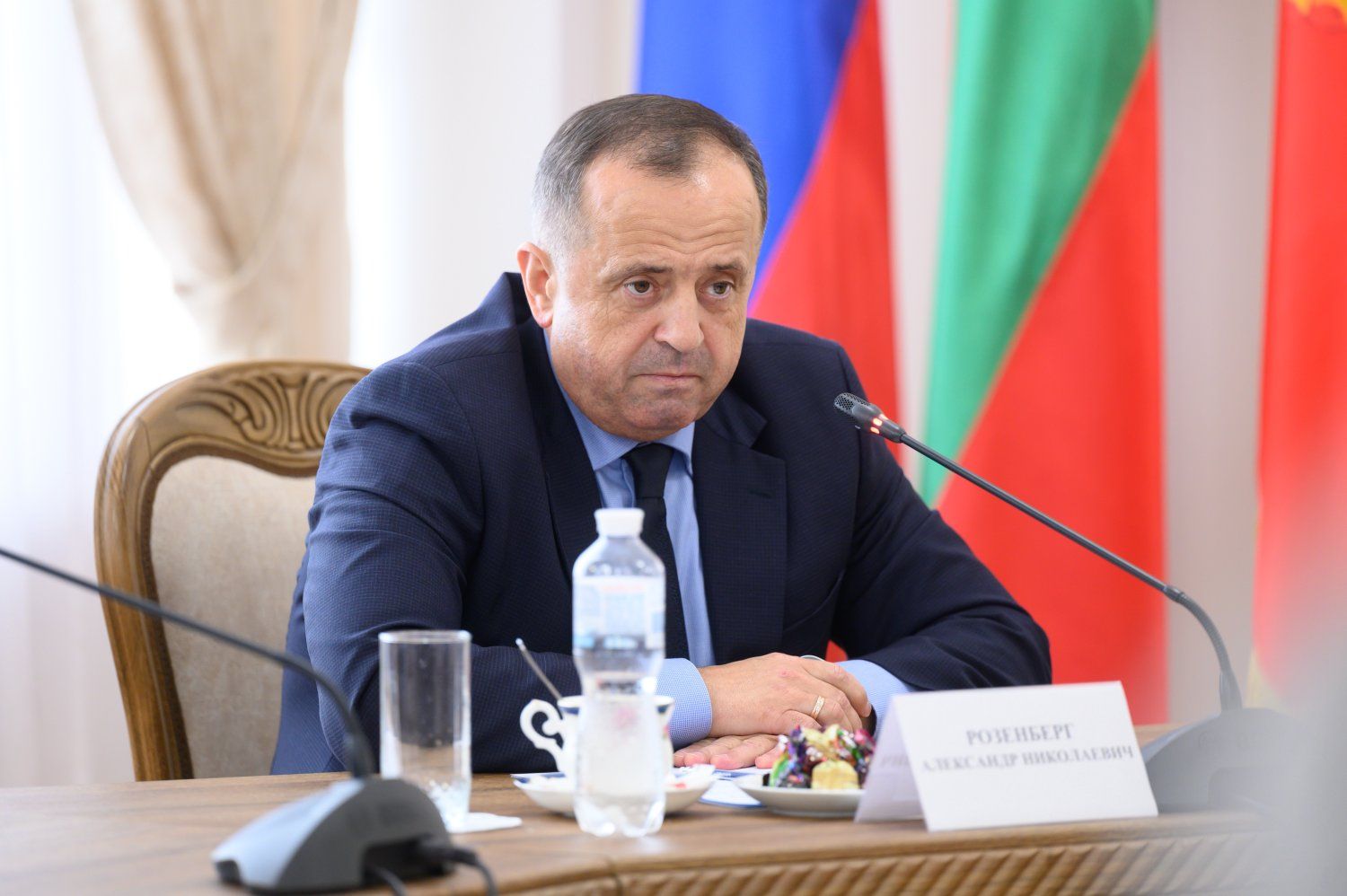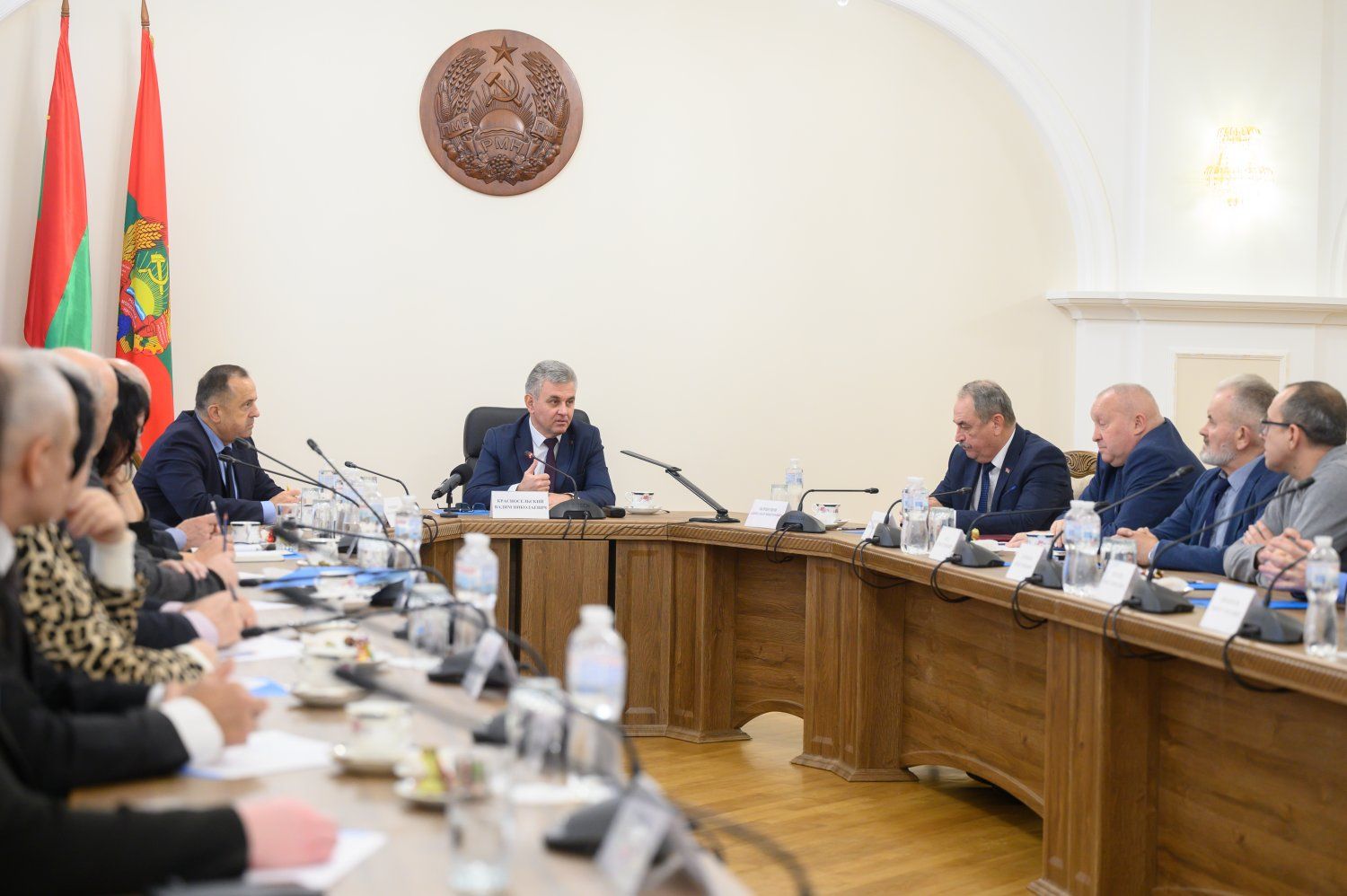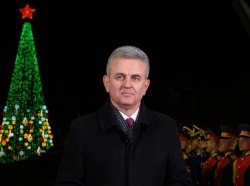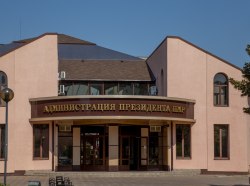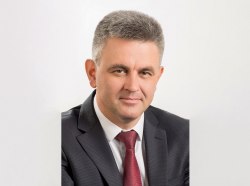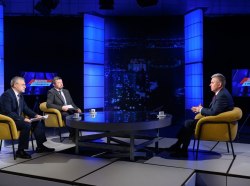The meeting of the President and the leaders of public organizations, unions, and movements representing the interests of various diasporas took place at the House of Official Receptions of the Administration of the PMR President. The following participants were invited to the discussion in addition to members of the national communities: Chairman of the PMR Government Alexander Rozenberg, head of the legislative branch Alexander Korshunov, chairman of the relevant parliamentary committee Igor Buga, head of the PMR Public Chamber Vladimir Ladunkin, and the Commissioner for Human Rights in Pridnestrovie Vyacheslav Kosinsky.
Opening the discussion, Vadim Krasnoselsky emphasized that he does not divide the Pridnestrovian people into components based on ethnicity and considers them a single family. The President noted that one of the most important achievements of the Pridnestrovian people is interethnic harmony. Yuri Kreichman, Chairman of the Chesed Center, explained that his organization also adheres to this principle: membership does not require being an ethnic Jew. Yuri Kreichman expressed gratitude to the country's leadership for their efforts to preserve the memory of the tragic events in Jewish history, mentioning memorials in Bendery and Dubossary. He drew attention to the monument to the victims of the Holocaust in Tiraspol. The community proposes expanding its informational content by adding new elements. Vadim Krasnoselsky generally supported the idea, noting that the issue requires coordination with the city's urban development plans. Another issue raised by representatives of the Jewish community was the import of matzoth, a product with special religious symbolism. It is imported once a year for Passover. Clearing the shipment as humanitarian aid takes a considerable amount of time, and without the appropriate documentation, the shipment is considered commercial and requires customs duties. The matzoth is never sold under any circumstances; it is distributed exclusively free of charge. Producing it locally is impractical, as demand is low and production is expensive. The President instructed the government to explore the possibility of waiving the import duty on this product.
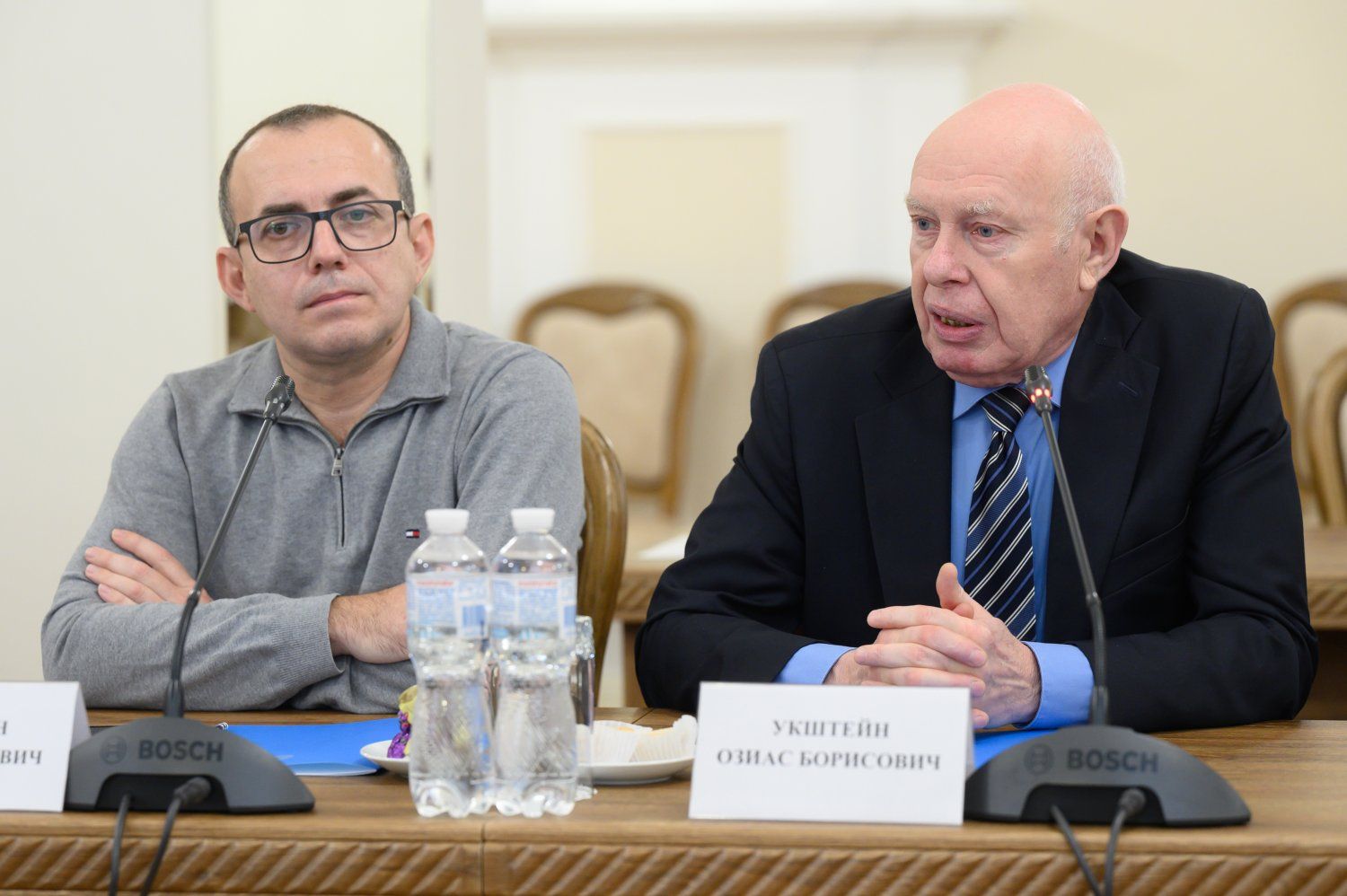
The Armenian diaspora is asking for attention to be paid to the old cemetery in Grigoriopol. Local Armenians consider this site deserves inclusion in the list of cultural and historical heritage sites. Specialists from the relevant research laboratory at Perm State University and the State Archives Service will study the matter. At a minimum, information plaques should be installed to inform about the cemetery's burials and the connection of the Armenian ethnic group with the history of Grigoriopol, according to the meeting participants.
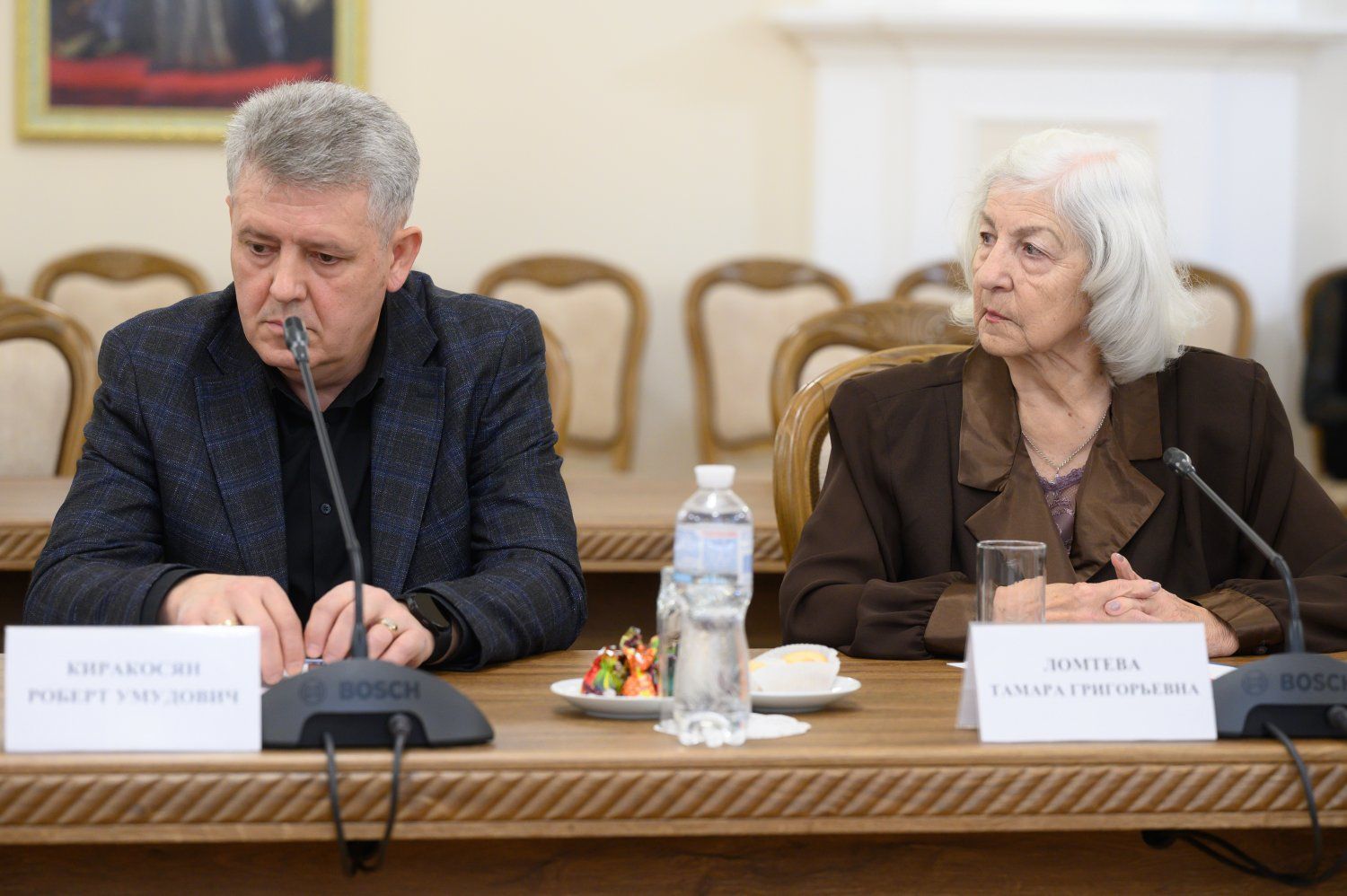
Tamara Lomteva, Chairperson of the Belarusian Cultural Society (who is also a member of the Advisory Council of the Belarusian Ministry of Foreign Affairs), explained that Pridnestrovian graduates, regardless of citizenship, have the opportunity to study at Belarusian universities. Vladimir Ladunkin recalled the current cooperation agreement between Tiraspol and Minsk. Olga Piletskaya, Chairperson of the Rybnitsa Belarusian Cultural Society, urged attention to City School No. 6, for which a building had been started by the NGO Eurasian Integration, but the work was never completed. Children continue to attend school in the old building. The window frames in the cafeteria have long been in need of replacement, which was delayed due to the anticipated relocation. It seems appropriate to revisit the issue of improving the existing school building. The President instructed that documentation on the priority needs be prepared.
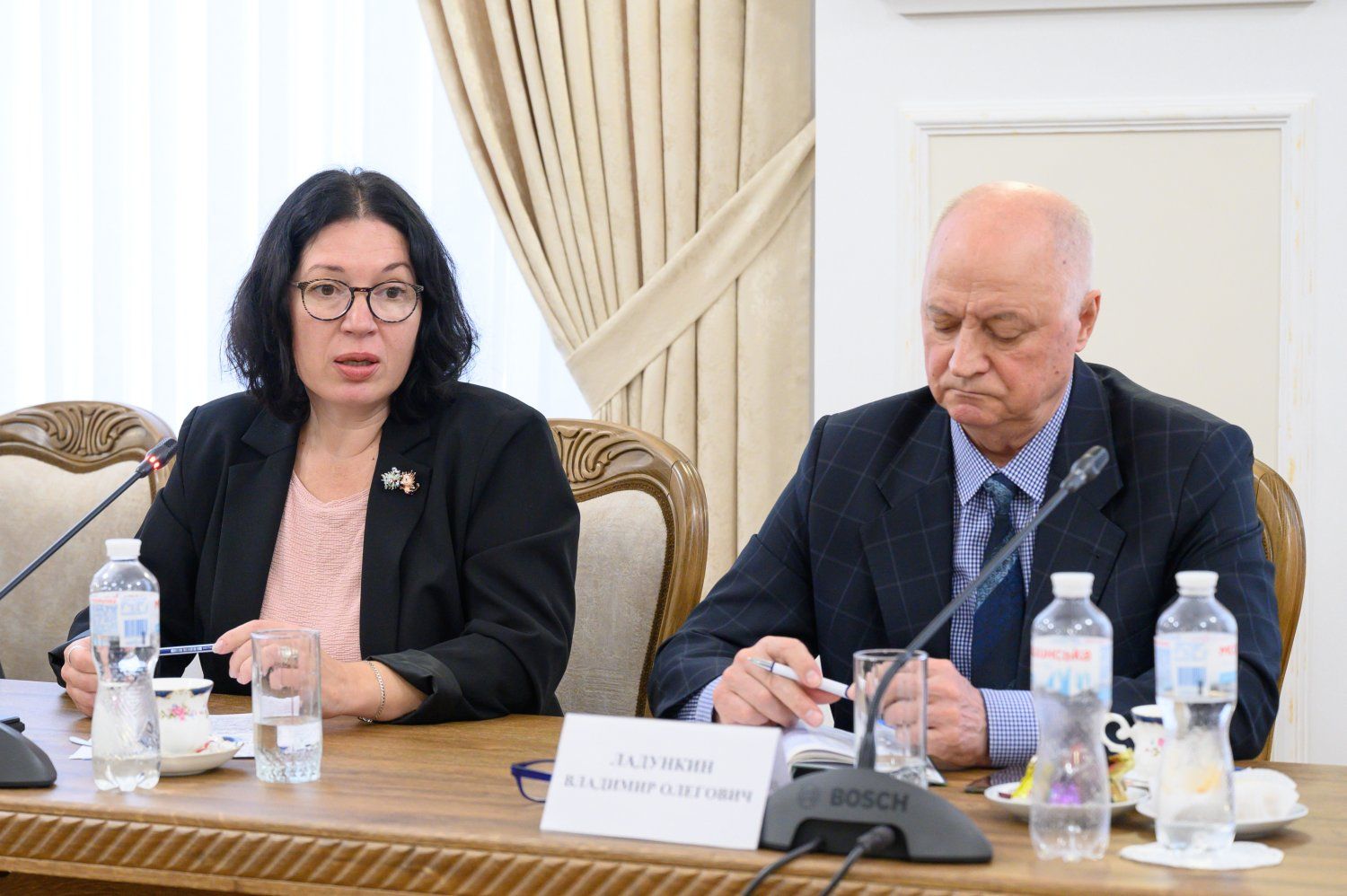
Viorika Kokhtareva, Chairperson of the Union of Russian Communities, spoke about systemic Pridnestrovian-Russian cooperation. She raised issues that are currently on everyone's lips: disruptions in diplomatic mail and the associated difficulties in processing documents for Russian citizens and Pridnestrovians applying for Russian citizenship; risks associated with the possible introduction of a visa regime for Russian citizens by Moldova; and the expiration of the agreement between Russia and Moldova on scientific and cultural centers in July next year (and the high probability that it will not be extended). The absence of a platform such as Rossotrudnichestvo will create difficulties, including in the educational sphere. As is known, Pridnestrovian graduates receive quotas for study at Russian universities through this organization.
A representative of the German community spoke about the possibility of organizing student exchanges. Gagauzians are raising the issue of quotas for Gagauz graduates to study at Pridnestrovian universities. Roma and Moldovans have requested, if possible, the provision of premises to house their public organizations. The head of the Union of Moldovans Sergiu Sandu spoke about the shortage of Moldovan language textbooks. The lack of Moldovan and Ukrainian literature in bookstores was also highlighted.
Alisa Kokhanova, Chairperson of the Chervona Kalina society, spoke about plans to create an Alley of Peoples' Friendship in the capital's arboretum. She invited representatives of communities and diasporas to participate in the event. Plans are underway to plant red maples. The date will be announced later.

